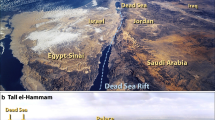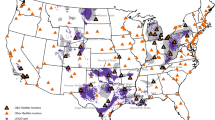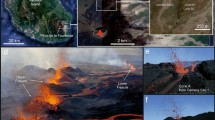Abstract
PROF. GALLOWAY'S brief article on dust explosions in NATURE of November 30 is very timely; but readers of it would receive the impression that the true cause of the explosion at the Tradeston Flour Mills, Glasgow, in 1872, was first made known in the report of Profs. Rankine and Macadam. This is not the case: the fact that flour-mill ex-plosions are actually dust explosions was first stated in England by Mr. Watson Smith, editor of the Journal of the Society of Chemical Industry, in a letter which appeared in The Glasgow Herald on July 12, 1872, immediately after the Tradeston disaster. The priority of Mr. Watson Smith was recognised at the time by the Royal Society of Edinburgh, and later (in 1882) by Sir Frederick Abel in a lecture at the Royal Institution.
This is a preview of subscription content, access via your institution
Access options
Subscribe to this journal
Receive 51 print issues and online access
$199.00 per year
only $3.90 per issue
Buy this article
- Purchase on Springer Link
- Instant access to full article PDF
Prices may be subject to local taxes which are calculated during checkout
Similar content being viewed by others
Author information
Authors and Affiliations
Rights and permissions
About this article
Cite this article
SHONK, A. Dust Explosions. Nature 88, 212–213 (1911). https://doi.org/10.1038/088212d0
Issue Date:
DOI: https://doi.org/10.1038/088212d0
Comments
By submitting a comment you agree to abide by our Terms and Community Guidelines. If you find something abusive or that does not comply with our terms or guidelines please flag it as inappropriate.



